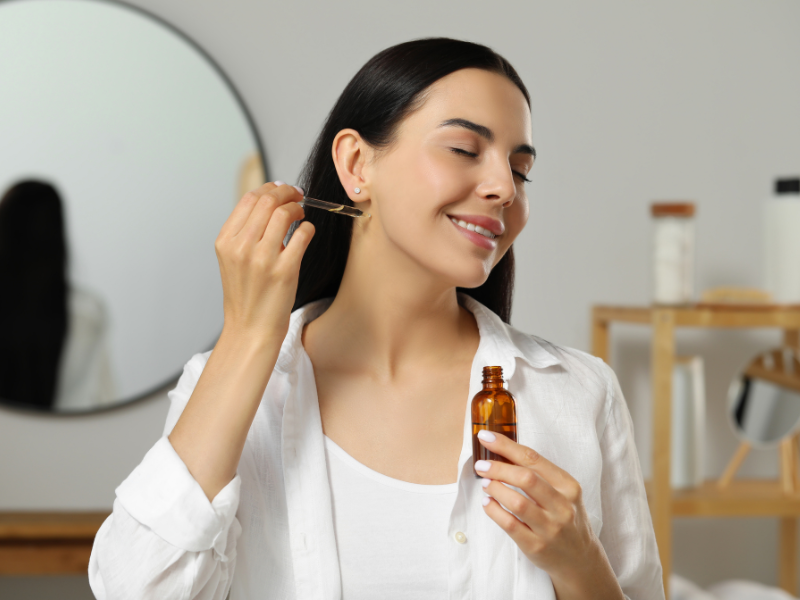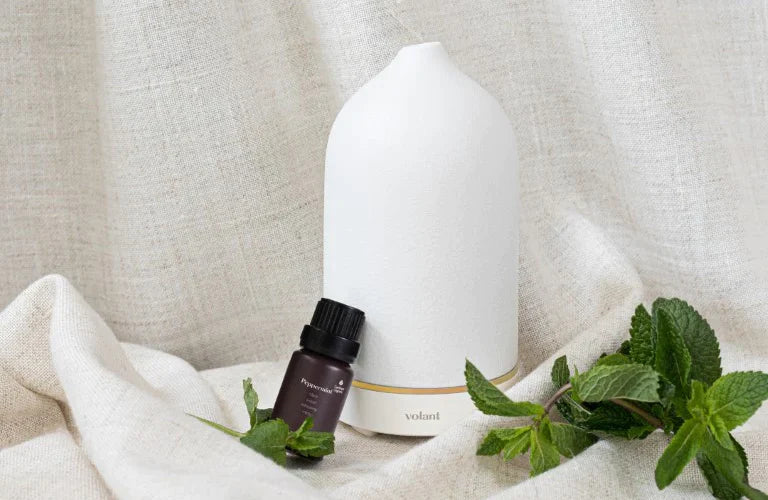Since then, there have been vast improvements in the field, and there are now a full 30 days dedicated to advocating awareness for this issue. The world recognizes Mental Health Awareness Month every October, but that doesn't mean you shouldn't look after your well-being 365 days a year.
While there are numerous ways to promote well-being and boost your mental health, there are few that are all natural. People the world over have started using essential oils for mental health - although perhaps saying “started” is not quite accurate. Aromatherapy is a practice thousands of years old and, while it was once regarded as based on superstition, scientific studies performed in the past few years have established reams of accurate, provable evidence as to how and why they work.
There’s a spike in interest in using essential oils for mental health, and there are a vast number of people who are already enjoying the benefits that these oils offer. If you want to add to these ever-growing numbers, boost your mental health and enhance your wellness, this guide is for you.
How to use essential oils for mental health
Before we look at how you can use essential oils, we need to answer the question of what is mental health?
In a nutshell, mental health is how we feel, think and behave. It’s our emotional, social and psychological well-being and influences cognition, perception and behavior. It also plays a huge role in how we handle stress, our decision-making abilities and our relationships at work and at home. It’s important to note that mental health and mental illness are not one and the same. You can suffer from poor mental health without having a mental illness, but a mental illness is often accompanied by symptoms of poor mental health.
Fortunately, there are multiple ways to use essential oils for mental health, each with its own special set of advantages. You can choose from one of the following options or combine several of them if you prefer:
Diffusion

Fill your diffuser container to the fill line with water and add between 20 and 25 drops of essential oil. Cover it and select your time setting so that the scent gets released continuously or at set intervals. This is one of the easiest ways to enjoy the mental well-being benefits of essential oils.
Make an air or room spray

Mix your chosen essential oil with water in a ratio of 20 drops to four ounces. If you’d like a stronger scent, mix two ounces of water with between 15 and 25 drops of essential oils. Spraying this mix into a room you’re going to be spending time in is an excellent way of reaping the oils’ benefits.
Bathe with oils

For a single bath, combine between 3 and 12 drops of essential oil in a tablespoon of carrier oil and stir this into the water before you climb in. Doing so will disperse the oil throughout the water somewhat evenly and ensure that they release their goodness onto your skin and via your nasal passages. If you choose this method, ensure that no oil comes into contact with the skin on your face. Essential oils are potent natural substances and if undiluted, can cause irritation, especially to the softer membranes of your mouth and nose.
Massage

Massage is a fantastic resource for mental health, decreasing anxiety, lowering stress levels and reducing irritability. Dopamine and serotonin, the feel-good chemicals, are increased in the brain after massages. Scheduling regular sessions with a massage therapist can really help if you’re facing mental health challenges.
Dilute a single drop of essential oil in a teaspoon of carrier oil for a safe ratio and then use your dilution as part of the massage process.
Inhalation

Although you’ll be inhaling the wonderful aroma of essential oils when you apply them topically, add them to a bath or your diffuser or use them in a massage, when we say inhalation, we are typically referring to sniffing their scent straight out of the bottle or from cupped hands, a soaked tissue or an aromatherapy inhaler.
Using essential oils for mental health as a complementary treatment
As essential oils are inhaled or absorbed by the skin, their scent molecules travel to the brain, impacting the amygdala via the olfactory nerves. The amygdala is the emotional center of the brain where our feelings get processed, which is why these substances have such a powerful impact on how we feel.
Research is increasingly revealing that aromatherapy can help us answer the question of what is mental health and really experience its benefits when we are in a good space. For now, remember that mental health can be broken down into three major components: behavioral, cognitive and emotional health. Each of these elements interacts with and influences the others. Keeping them at optimum levels and functioning properly is vital to our overall well-being and the quality of our lives.
Top essential oils for mental health
We’ve listed some of the most effective essential oils in honor of Mental Health Awareness Month, but don’t feel limited to when you can use them! These oils have all been found effective for anxiety and depression, and more than a few of them can help to minimize certain symptoms of mental illness.
Bear in mind, however, that success rates will vary from one person to another and that essential oils should be used in conjunction with medical treatment.
Speak with your health care provider to get a better idea of what is mental health and chat about how to use these oils sensibly with whatever medication you may be on.
Cedarwood

Cedarwood essential oil has stress-relieving properties and has proven to be especially good for people who frequently operate in high-stress environments. Inhaling this essential oil may improve performance, promote focus and could also lessen symptoms of depression.
Chamomile

The role of inflammation in depression and fatigue has been established, and chamomile has long been used to reduce swelling. Roman chamomile essential oil can also restore the balance of aggravated bodily systems and boost motivation.
This oil is especially recommended in cases where anxiety, depression and digestive issues are linked. It can alleviate gut inflammation as it promotes relaxation, reducing the chance of digestive problems.
Frankincense

Frankincense can balance hormones and lift moods, especially in women. Terminally ill patients have found relief from depression and from pain when using this oil, and it has the capability of regulating our emotions.
Additionally, frankincense essential oil activates a protein that plays a role in how we perceive warmth, creating an effect of comfort and peace from within.
Grapefruit

With its invigorating, uplifting scent, grapefruit essential oil may energize you. It’s also frequently recommended for people in recovery who are fighting cravings for alcohol and drugs.
In early sobriety, people frequently battle a range of mental health issues, and withdrawal symptoms may last for a long time. Essential oil therapy has been proven to help in certain Addiction Treatment programs. Recovery programs that include grapefruit oil can help to increase the chances of ongoing success and lasting wellness.





